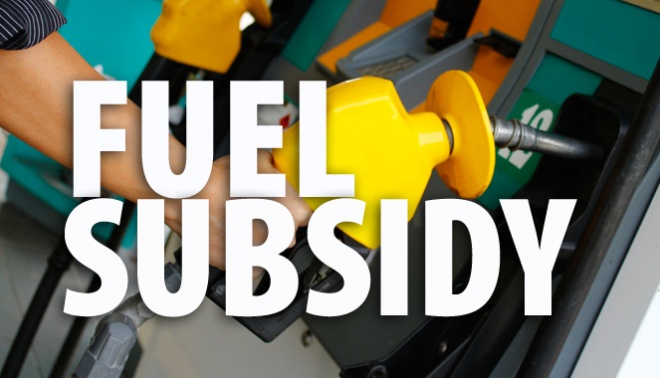Economists and experts in the petroleum industry are insisting that unless the federal government fully deregulates the downstream industry of the sector, there will be no end to the perennial crisis.
This comes to a head as the federal government has plunged an average of N23 trillion over the past 17 years by the reckoning of NATIONAL ECONOMY, on suppressing the price of fuel and reducing scarcity of the product, to no avail.
Buttressing their position on deregulation, the experts said the coming on stream of Dangote Refinery will not have any significant impact on the price of fuel.
Contrary to the high anticipation of relief in the price of petrol when Dangote Refinery comes on stream in the fourth quarter of this year, they posit that it will have minimal impact on the price of fuel. By implication, the federal government will continue to subsidise the product, which is expected to gulp more than N6 trillion this year, and almost N7 trillion in 2023, or Nigerians will be saddled with the burden of paying N400 per liter for petrol.
Speaking on the issue yesterday, lecturer at Adeleke University, Professor Tayo Bello, in an interview with NATIONAL ECONOMY said if Nigeria’s crude oil is sold at international market price to Dangote, even though it is refined locally, one cannot expect him to sell below the international market price. He said the only advantage we can expect is that we will have access to the petrol not in the form of imported products.
He added that although Dangote Refinery is geographically in Nigeria, technically, it is not in Nigeria since it is situated in the Lekki Free Trade Zone, which he said may require business transactions in foreign currencies.
“If Nigerians believe that Dangote Refinery will crash the price of petrol at the filling stations we are only deceiving ourselves,” he stated.
“If there is no corruption the various costs of transportation and logistics associated with getting the product to end users may be cut off. But with spurious duties and levies by corrupt elements you might even discover that the product may cost as much as the cost of importing it today,” he noted.
The chief executive officer of Economic Associates (EA), Dr. Ayo Teriba, said Dangote Refinery is in an export processing zone; so, technically it is not in Nigeria—it is abroad. He said the refinery is technically not different from a refinery in the U.S. or in Singapore.
He stated that its products will not be priced in the local currency, naira—it will be priced in dollars or other foreign currencies.
He said the savings Nigeria will make will be more or less zero shipping costs and zero lead time.
Teriba stressed that the difference between the refineries in Warri, Port Harcourt, or Kaduna is that the products from those refineries are priced in naira, whereas the products from the export processing zone will be priced in dollars. “So unless you are prepared to pay the dollar price, they will ship it abroad, anyway. But all that landing and import costs will be saved,” he said.
Asked whether the new NNPC, which has already bought a 20 per cent stake in Dangote Refinery, could sell crude oil to Dangote Refinery at reduced cost to lower the cost of the final product for Nigerians, which is a form of subsidy, the CEO of Anthill Concepts Limited, and member of the Board of Economists, NATIONAL ECONOMY, Dr. Emeka Okengwu, said such an arrangement would be difficult considering the fact that the new NNPC is now a limited liability company, operating under the Companies and Allied Matters Act (CAMA).
He said the NNPC could have done that when they were NNPC Nigeria, not now that they are NNPC Limited because they are liable to a lot of legal issues from shareholders.
The minister of finance, budget and national planning, Zainab Ahmed, had also explained that Dangote Refinery will have less significance on the price of petrol in Nigeria because the refinery will be selling at international price.
She said, “What we are doing is enabling the petroleum sector to actually grow. There have been a number of refineries that have been licensed for several years. None of them was willing to start refining under the regime that we had, where fuel price is controlled.
“The Dangote refinery is sitting within an Export Processing Zone in Lagos, so they are insulated from that. When we buy fuel from Dangote, we will be buying fuel at the international market price.
“The only savings that we will be making is the savings of freight which is shipping. We will not be paying for shipping cost.
“But we will still have landing cost, labour cost, and the marketers will still have to put a margin. The refineries that are supposed to have come into operation can now come in because they are assured that when they produce, they can sell at market rate and recover their investments and make some reasonable profits.”
The director general, Budget Office, Dr. Ben Akabueze, also said that the effect of the Dangote Refinery on the downstream oil sector in Nigeria will be minimal, dashing the hope of Nigerians that the expected commencement of operations of the refinery later this year will ensure cheaper fuel supply in the country.
“Dangote Refinery will have minimal effect on the downstream oil sector in Nigeria when it commences operations.
“The refinery is located in a Free Trade Zone and as such it is technically, not in Nigeria. So, the product is likely going to be sold at international market price as long as it procures crude in dollars.”





